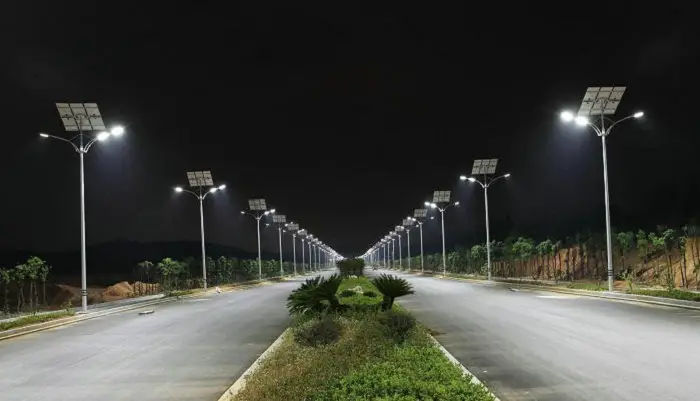In a move to reduce dependency on hydropower and embrace renewable energy technologies, the Zomba City Council (ZCC) has become the first Council in the country to install solar powered street lights in a project that will see 261 street lights installed across the city.
ZCC’s public relations officer, Mercy Chaluma, confirmed the development on Monday in an exclusive interview with the Malawi News Agency.
Chaluma said the project aims to among other things help promote the use of green energy and reduce the pressure on hydroelectricity, which the country is currently in short supply of.
Solar powered street lights
Chaluma made an assurance to those concerned about the quality of beam of the solar lights light during the rainy season and winter seasons saying the solar panels, which have been installed, store enough energy to produce powerful lights.
She further explained that the solar lights are to ease pressure on electricity bills on the part of the council.
Also read:Swedish firm moves US $2.5bn Malindi power plan to Tanzania
“The street light project will add beauty to the city and boost the city’s security,” she said.
The solar powered street lights are going to cover the city’s boundary. This is along the M3 road for a distance of 4 miles to Chikupira, media reported.
Presently, an installation of a third of the lights has been successful. This is under the project whose implementation is being done with funds from the Roads Fund Administration.
Electricity tariffs going up
On a different note, Malawians should brace themselves to start dipping deeper in their pockets to pay for electricity. This comes as Electricity Generation Company (Egenco) seeks to hike power tariff.
The power generation company intends to use the additional funds to hire 78MW of diesel generators from Electricity Supply Corporation of Malawi (Escom). This is mainly for purposes of mitigating the effects of power outages.
Egenco spokesman Moses Gwaza said they will make ‘evaluation of the financial proposal’ before suggesting the percentage tariff hike.
Electricity tariffs undergo review every four years. Since 2008, there have been two electricity tariff reviews; the first being from 2009 to 2013 and the second from 2014 to 2017.
